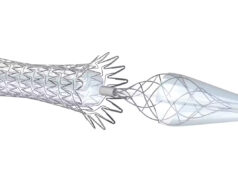Nonhealing wounds in patients with diabetes are a major cause of morbidity and mortality in the United States and are increasing at an alarming rate. Equally concerning, the current “standard of care” leaves 70% of diabetic wounds unhealed. Given this substantial impact on patient outcomes and health care expenditure, a critical unmet need exists for improved understanding of the pathophysiology of diabetic wounds to develop effective treatments.

Dr. Frank Davis
This year’s SVS Foundation’s Resident Research Award is being presented to Frank M. Davis, MD, of the University of Michigan, Ann Arbor, for his research on the epigenetic regulation of the prostaglandin pathway in macrophages during type 2 diabetic wound healing. Dr. Davis, and his mentor Katherine Gallagher, MD, also from the University of Michigan, investigated how impairments in the innate immune system in patients with diabetes promote chronic inflammation and impair wound healing.
Dr. Davis will present his award-winning research in the von Liebig Forum, Thursday, June 13, discussing the role of specific epigenetic enzymes in the dictation of macrophage phenotype in wound tissue. The talk will cover how diabetes alters those enzymes to influence a deleterious phenotype that promotes inflammation and delays wound healing. “Our laboratory specifically looks at the role of monocytes/macrophages in the inflammatory phase of wound healing and how perturbation in the local environment – such as those seen in diabetes – affects monocyte/macrophage phenotype and ultimately wound healing” said Dr. Davis.

Dr. Katherine Gallagher
The talk will specifically cover the cyclo-oxygenase (COX)-2/prostaglandin E2 (PGE2) axis. Using both a murine model and human wound samples Dr. Davis demonstrates that PGE2 is substantially elevated in diabetic wound macrophages. Further, aberrant PGE2 production in diabetic macrophages depended on epigenetic alterations to key enzymes in the PGE2 pathway.
Specifically, MLL1, a histone methyltransferase, increased H3K4 trimethylation resulting in upregulation of PGE2 in diabetic wound macrophages. Additionally, the authors found that augmentation to miR-29b and DNA methyltransferases in diabetic macrophage result in increased COX-2 expression. Overall, the increased COX-2/PGE2 production in diabetic macrophages impairs bacterial killing, predisposing diabetic wounds to chronic infection.
“Our research provides insight into the prostaglandin E2 axis and its role in macrophage inflammation, which has previously been an unrecognized pathway leading to delayed diabetic wound healing” added Dr. Gallagher.
Finally, in his presentation, Dr. Davis will discuss translational therapies as inhibition of the PGE2 pathway through macrophage targeted nanoparticles decreased diabetic inflammation and improved healing. “Together, our results indicate the COX-2/PGE2 pathway is a critical regulator of macrophage phenotype and impaired diabetic wound healing. This work identifies therapeutic targets for negating dysregulated inflammation in diabetic wounds and identifies macrophage-targeted local therapy as an effective means of improving wound healing,” Dr. Davis concluded.












